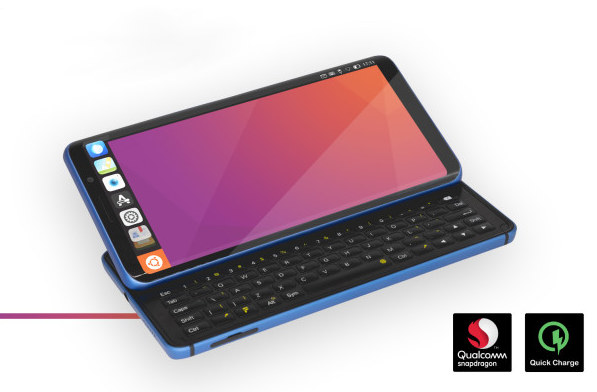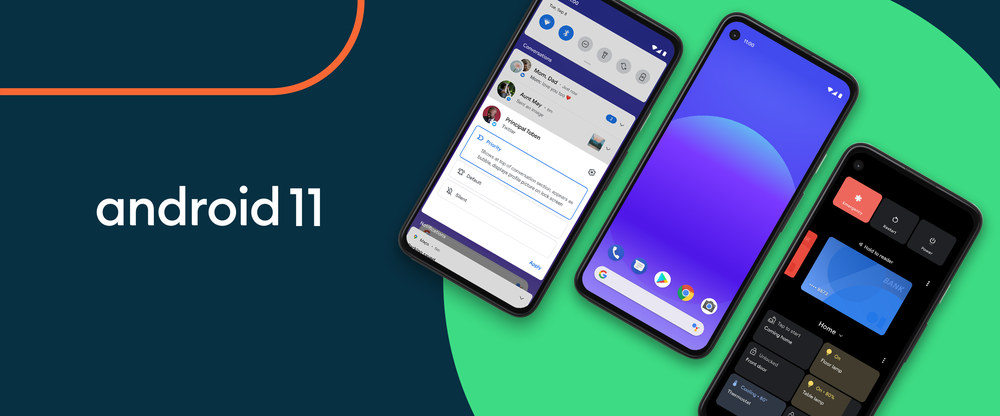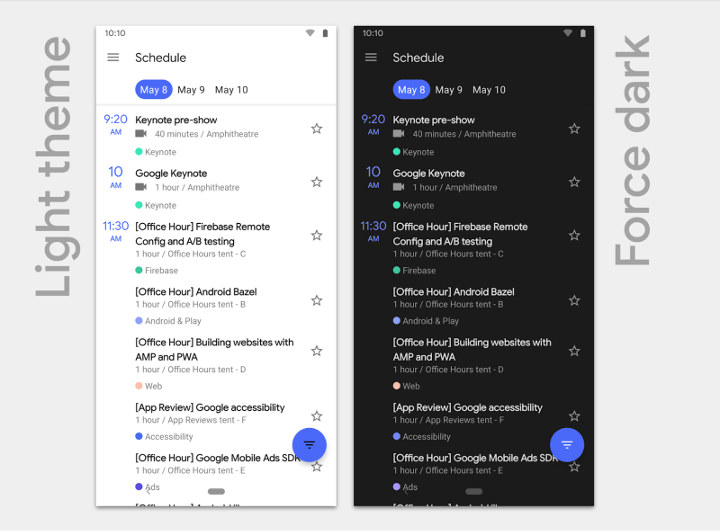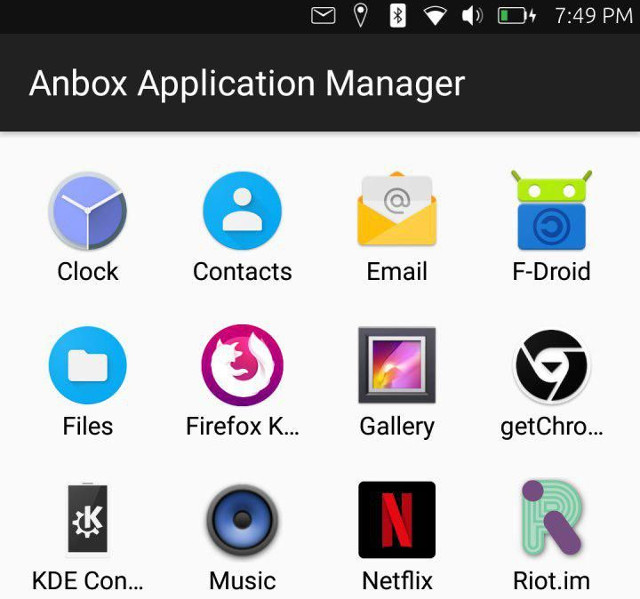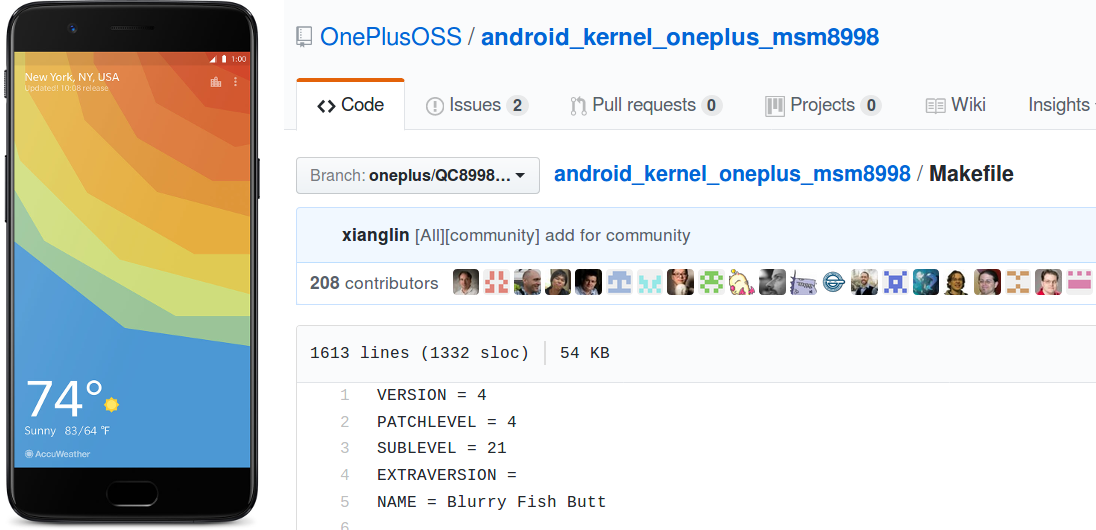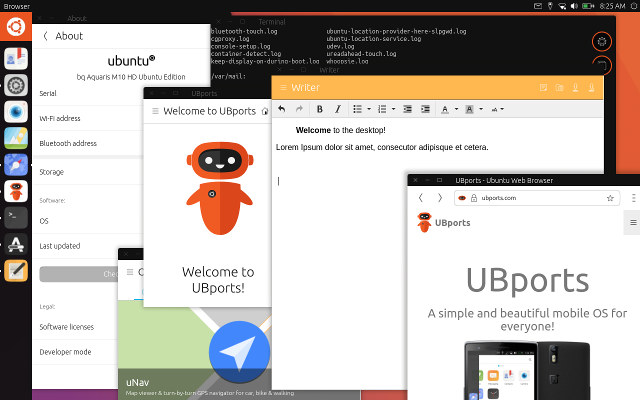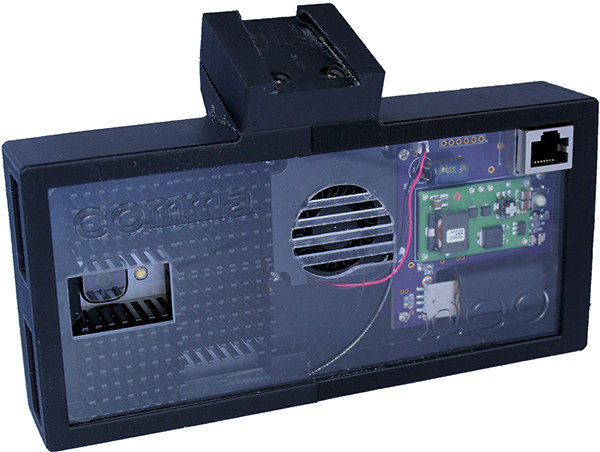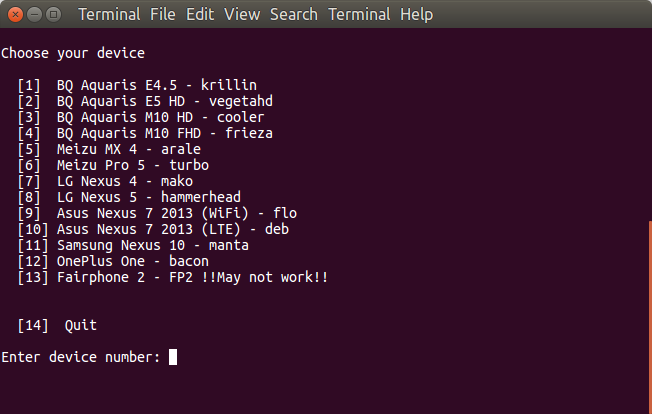UBPorts has just released Ubuntu Touch 20.04 OTA-2 based on Ubuntu 20.04 with three new phones supported namely the Fairphone 3, the Volla Phone X23, and F(x)tec Pro1 X with the latter being introduced in 2020 in a crowdfunding campaign claiming Ubuntu Touch support. Ubuntu Touch was initially an initiative by Canonical for desktop/mobile convergence, but when the company decided to refocus its efforts on cloud and IoT, the UBPorts community took over and eventually outed the first stable Ubuntu Touch release in June 2017. Work has continued since then and with the Ubuntu Touch 20.04 OTA-2 release, the community-supported distribution now supports 15 smartphones with the Fairphone 4, Google Pixel 3a and 3a XL, Oneplus 5 and 5T, OnePlus 6 and 6T, Vollaphone and Vollaphone X, Vollaphone 22, Xiaomi Mi A2, Xiaomi Poco M3, Xiaomi Redmi Note 7 and 7 Pro, besides the three new mobile devices added to […]
Android 11 Release – People-centric Communication and “Pixel-First” Features
Six months have passed since Android 11 developer preview was released in February and at the time we noted enhancements for foldables and 5G, new call-screening APIs, new media & camera capabilities including animated HEIF support, as well as machine learning improvements. Google has now officially released Android 11 that is currently rolling out to select Google Pixel, OnePlus, Xiaomi, OPPO, and Realme phones. More phones will be upgraded/supported in the future, and Google also introduced some Pixel-first features that will (initially?) end up on Pixel phones exclusively. All Android 11 phones will support chat bubbles to message on top of other applications, built-in screen & audio, wireless Android Auto support with compatible cars, one-time permission for increased privacy, and more. But Google may have changed strategy trying to make Pixel phones more attractive to prospective buyers and increase sales as the Android 11 release comes with the following Pixel-exclusive […]
Android 10 Beta 3 Now Available on 15 OEM Phones
Google introduced Android Q in March with the first beta and preview SDK release. The new version of Android introduced more privacy protections, support for foldables, sharing shortcuts, connectivity improvements (e.g. WPA3 security), new camera and multimedia features such as dynamic depth photos and AV1 media codec support, as well as an updated neural network API, higher ART performance, and security improvements. Google has now announced Android 10 Beta 3 with a few new features over the first preview release, and support for 15 OEM phones on top of the 6 Pixel phones already supported. Some of the new improvements in Android 10 Beta 3 include: Scoped Storage feature giving users control over files and preventing apps from accessing sensitive user or app data. See the corresponding developer page for details. Update of BiometricPrompt authentication framework to support biometrics, e.g. face recognition, at a system level. Project Mainline described as […]
UBPorts Ubuntu Touch Firmware to Add Android App Support using Anbox
Last spring, Canonical stopped working on mobile and convergence, and dropped any work on Unity, which explains why Ubuntu 17.10 is now running Gnome desktop environment by default. The company had to take this decision because there was little interest from manufacturers for such solution, and instead they refocused on the more profitable IoT and cloud markets. However, some members of the community still wanted to run Ubuntu on their phone, and that’s why UBPorts community decided to carry on development on their own and released their first stable Ubuntu Touch image for supported smartphones last summer. A phone running Ubuntu Touch is great, but you’d have a very limited set of app to play with, so the developers are now working on adding support for Android apps support. There are various ways to implement such features, but they went with Anbox, as it executes Android apps natively in a […]
OnePlus 5 Smartphone Linux Kernel & Android Source Code Released
OnePlus 5 is a premium smartphone powered by a Qualcomm Snapdragon 835, 6 to 8 GB LPDDR4x RAM, 64 to 128 GB UFS 2.0 storage and a 5.5″ Full HD display, as well as the usual LTE, WiFi, Bluetooth, GPS.. connectivity. It was launched yesterday for $479 with 6GB RAM/64GB storage, $539 with 8GB RAM/128GB storage, and today, I’ve just read on XDA developers that the company had already released the source code for the phone. Beside the official Google Nexus/Pixel smartphones, many manufacturers will drag their feet before they eventually open the source code that they are legally required to release. Some companies will release the source code as tarballs, which works, but OnePlus has done better with Linux 4.4.21 source code available on Github. You should also be able to get the Android 7.1 Nougat source code as indicated here:
|
1 2 |
repo init -u git://github.com/OnePlusOSS/android.git -b oneplus/QC8998_N_7.1 repo sync |
The source code should lead to improvements […]
UBPorts Project Announces its First Stable Ubuntu Touch Release for Supported Smartphones
Canonical may have stopped working on Unity, Mobile & Convergence for Ubuntu last April, but since then, at least two teams have worked on Unity and mobile convergence alive with respectively yunit and UBPorts projects. There has not been much activity on the former, but UBPorts has recently announced the first OTA-1 stable release for supported devices, minus Nexus 4 and 5 for now. This release brings bug fixes, experimental AGPS support, he UBports Welcome app, the OpenStore, and the Terminal and File Browser are preinstalled. It should work on OnePlus One, FairPhone 2, Optimus L90, BQ Aquaris M10 HD / FHD, and possibly some other models. They also mentioned work on Halium – a project aiming to standardize the Android hardware compatibility layer between many Linux distributions – has been progressing nicely, and it can now boot both Ubuntu Touch and Plasma Mobile. Convergence still needs some work, but […]
Hack Autonomous Driving into Your Car with Open Source Hardware Comma Neo and Open Pilot Software
George Hotz setup Comma.ai company and worked on a commercial project called Comma One to add autonomous driving to some car models, but then the US highway authorities started to ask questions and promised ever increasing fines if he could not comply with some specific safety regulations/requirements, and eventually he decided to cancel the project due to the regulatory burden. A few weeks passed since the cancellation, and he has now released Open Pilot auto-pilot software and Comma NEO a work-in-progress open source hardware platform connecting to Qualcomm Snapdragon 820 powered OnePlus 3 smartphone to run the software. The system is said to implement “Adaptive Cruise Control (ACC) and Lane Keeping Assist System (LKAS) for Hondas and Acuras”, and performs about the same as “Tesla Autopilot at launch, and better than all other manufacturers”. Open Pilot currently only supports the Acura ILX 2016 with AcuraWatch Plus and the Honda Civic […]
Magic Device Tool Helps You Switch Between Android and Ubuntu on Supported Phones
There have only been a few phones released with or supporting Ubuntu so far, and those phones will normally be able to run Android too since Ubuntu Touch relies on Android drivers, and you may decide that Ubuntu is not for you and switch back to Android, or the contrary, if you’ve purchased an Android phone, you may want to install Ubuntu instead. In order to simplify the task of installing operating systems, Marius Quabeck has developed “Magic Device Tool“. As you can see from the screenshot above, 13 phones and tablets are currently supported. You’ll need a computer with Ubuntu 15.04 or greater to install the tool, and I’ve done so on Ubuntu 16.04:
|
1 2 3 4 |
git clone https://github.com/MariusQuabeck/magic-device-tool.git cd magic-device-tool chmod +x launcher.sh ./launcher.sh |
The script will also install phablet-tools if it is not already installed, so if you are not root, you’ll need your account to be member of sudoers. Once the initial setup is done, you’ll […]


